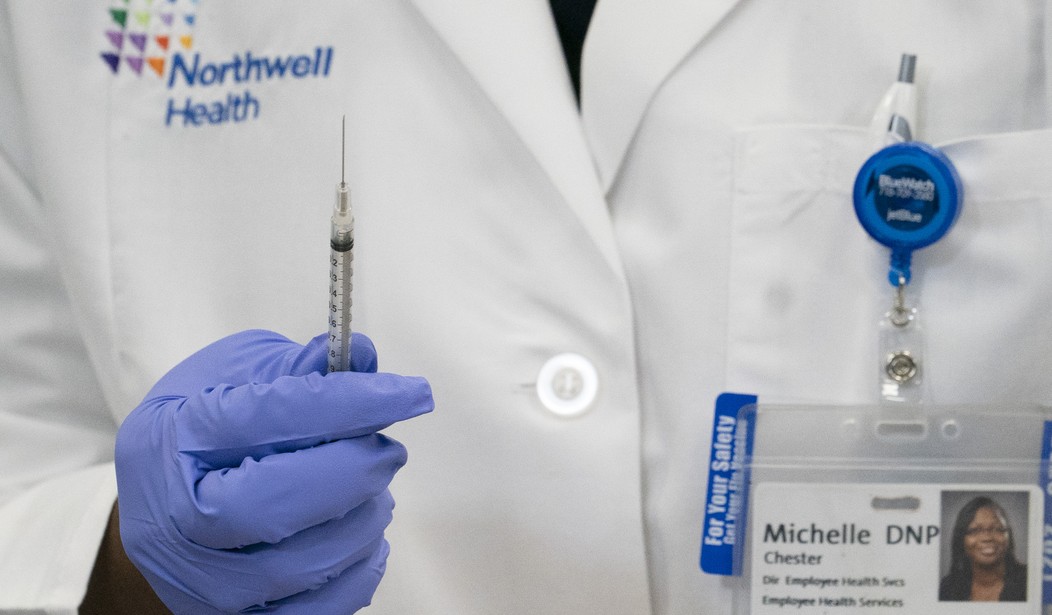A disturbing headline popped up in the New York Post this weekend, calling attention to a young woman from Brooklyn who recently contracted COVID. That headline wouldn’t be remarkable at all, were it not for one thing. Ashley Allen had received her Johnson&Johnson vaccination three weeks prior to testing positive. It’s clearly a frustrating experience for Allen, who claims that she still followed all of the masking and social distancing protocols after being vaccinated, but medical authorities are reminding people that, while uncommon, this type of event was predicted before the vaccines even went into general productions.
A Brooklyn woman who managed to avoid catching COVID-19 throughout 2020 went down with the bug this month — three weeks after being vaccinated.
Ashley Allen, 31, spoke to The Post by phone while quarantined in her Williamsburg apartment and in between calls from city contact tracers. The contact tracers “started asking me questions about what I was doing three weeks ago,” Allen said. “And I said I was getting vaccinated.”
Allen was thrilled when she was able to book an appointment for the one-dose Johnson & Johnson vaccine at the Javits Center on March 10.
Allen reports that she experienced only mild side effects from the vaccine for one day and then felt fine. Three weeks later, the trouble began. Initially, her symptoms started with a dry, scratchy throat, progressing to a dry cough. Within a few days, she experienced “debilitating fatigue,” and went to see her doctor. Allen flunked three COVID tests in a row, confirming that she had indeed contracted the disease.
But as health officials are reminding us, none of the vaccines provide 100% absolute immunity. The Johnson&Johnson shot is rated as being 66% effective in terms of preventing infection, meaning that if you are exposed, you still have a one in three chance of contracting the disease. (Moderna and Pfizer are rated as being 95 and 96 percent effective respectively.) But the difference is, there should be little to no chance that Ashley Allen will die or require hospitalization as a result of catching COVID because her immune system is fighting off the virus.
Still, this just represents one more bad headline that J&J didn’t need regarding their vaccine. It comes on top of the news that Ed Morrissey covered on Friday, indicating that the company will be undergoing a steep decline in production numbers, largely due to issues at their Maryland facility.
Johnson & Johnson is scaling back shipments of its single-dose Covid-19 vaccine by 86% next week as it grapples with manufacturing issues at a major plant in Baltimore.
The government has allocated only 700,000 J&J shots to states next week, down from 4.9 million the week prior, according to data from the Centers for Disease Control and Prevention
That’s not a minor decline at all. Dropping from almost 5 million shots per week to less than three-quarters of a million is essentially a collapse of your production capacity. Fortunately for J&J, that’s expected to be a temporary situation. Also, demand for vaccines is beginning to taper off, so we may not see as much of an impact in terms of availability, at least in the larger population centers. If nothing else, the company should be able to look forward to flooding foreign markets with their product when they get back up to speed. Given the more lenient storage requirements of the J&J vaccine, combined with the fact that you only need one dose, it will probably be very popular in underdeveloped countries with harder-to-reach populations.
The attitudes of people back home may be another matter, however. Despite all of the lecturing we’ve received from Dr. Fauci about “not shopping around” for vaccines and taking the first one available, people have been flooded with enough news coverage of this situation that it’s impossible to avoid. Who really wants to go with a 66% success rate when there’s a 95 or 96 percent efficacy option available? It just seems like common sense.








Join the conversation as a VIP Member